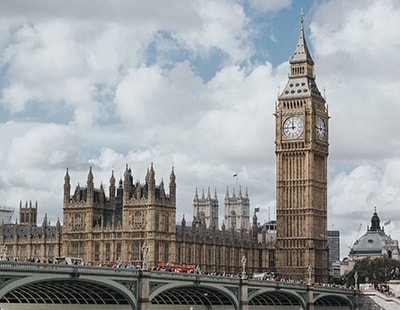
A prominent campaigner for alternatives to traditional rental sector deposits is welcoming the government’s commitment to consider the issue in the next six months.
In its response to a Select Committee of MPs’ recommendations on letting agents’ fees and other aspects of the rental sector, the government stated: “We have noted the committee’s suggestion that government should encourage innovation in the deposit free renting sector by assessing the merits of alternatives to traditional security deposits and reporting their findings to the committee. Government will explore the merits of deposit alternatives and reply to the committee within six months”
An impact assessment of the forthcoming Tenants’ Fees legislation gives another insight into the government’s current thinking, stating: “Deposits have become larger than necessary to provide sufficient security for landlords...tenants can therefore be required to pay unreasonable deposits which are incommensurate with landlord’s risk. Tenants have little bargaining power to influence this level of deposit which is further indication that the lettings market is not functioning in accordance with true market forces”.
“The level of deposits requested can sometimes be excessive... (with) tenants paying substantial amounts of money upfront at the outset of a tenancy which can reduce affordability ... [Deposits] “involve substantial amounts of money and make entering and moving within the private rented sector financially prohibitive”.
The impact assessment also predicts that the new bill will cost landlords £82.9m, letting agents £157.1m and could lead to “the closure of letting agents and employment losses” and “potential higher rents”.
News of the government pledge to report back within six months was welcomed by Ajay Jagota, founder of deposit free renting firm Dlighted and head of the #ditchthedeposit campaign - he has long campaigned for the private rental sector to adopt alternatives to traditional tenancy deposits.
“The deposit establishment was practically cracking open the champagne last week when the final draft of the Tenants Fees Bill left a system they profit from enormously at the expense of landlords and tenants largely intact, but this announcement shows more reform could be on the cards – and could be with us within months” says Jagota.
“The government’s thinking is clear – they’re coming around to the view that deposits are ‘unreasonable’, ‘excessive’ and make entering and moving within the private rented sector ‘financially prohibitive’. They don’t meaningfully ‘mitigate real financial risk’ and the money could be ‘better used in the wider economy’ – and I couldn’t have put it better myself.
“We’re talking about a system which sucks £4.2bn from our economy, makes renting unaffordable and costs landlords tenants without adequately protecting them against rent arrears and property damage. Intervention is needed to address these market failures, and it could be here by the end of the year.
“Even if this study doesn’t lead to new legislation the final Tenant’s Fees Bill still contains the provision for the Housing Minister to move the 6-week deposit cap whenever they feel like it – and there’s no reason to think that cap couldn’t be set at zero”.
#ditchthedeposit argues the government should support first time buyers to get a foot on the property ladder by transferring their rental deposits into Help to Buy savings schemes and by encourage the uptake of deposit free renting in the private rented sector.












%20-%20IMAGE%20Client%20Accounting%20%E2%80%93%20what%20are%20your%20options.jpg)









Join the conversation
Jump to latest comment and add your reply
Cannot see the problem, pay the deposit, comply with tenancy, get deposit back = zero cost.
Pay a fee for not paying a deposit, comply with tenancy, costs money!
the most a tenant should pay is just under two months otherwise the deposit could be treated like a bond and the tenant would be able to sell on their tenancy without the landlords permission. The problem with the insurance backed deposits scheme is that it costs the tenant a few hundred up front and a fee payable each year, which will cost the tenant more
Please login to comment